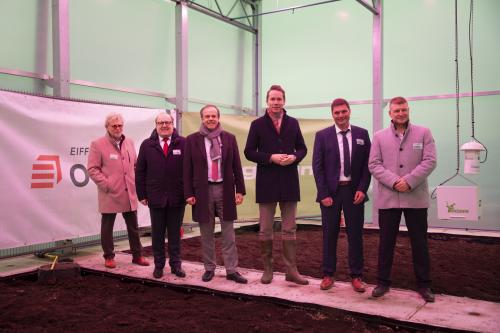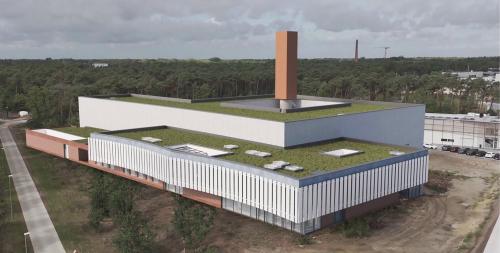Cordeel Belgium invests in local nature restoration
17.5 hectares of new climate buffer around Mechelen
The 2021 flood disaster in Wallonia painfully exposed how vulnerable Belgium really is. The catastrophe caused billions of euros in damages – also for businesses – and demonstrated what happens when we give too little space to nature and water.
From this, we draw a clear lesson: investing in nature means investing in climate-resilient infrastructure. With a contribution of €50,000, Cordeel Belgium is supporting the Muysenhuys project, an initiative by Natuurpunt and Natuurpark Rivierenland that is working in and around Mechelen to create natural climate buffers and increase biodiversity.
In doing so, we help build a living environment that is not only resilient to extreme weather conditions but also healthier and more robust for both people and nature.
From vision to impact
As a construction company within Cordeel Group, Cordeel Belgium has a direct impact on our environment. With this investment, we aim not only to compensate but also to actively contribute to the restoration of local biodiversity in the regions where we operate.
For us, future-oriented construction goes beyond energy efficiency or circular materials – it’s also about giving space back to nature and strengthening ecosystems.
Cordeel is best known today as a contractor, but behind Cordeel Group lies a network of companies, each contributing in its own way to a sustainable future.
For example, C-fire develops innovative, biodegradable fire suppression agents and systems, while C-biotech produces construction materials that absorb CO₂ instead of emitting it and uses hemp plants to remove PFAS contamination from the soil.
At Cordeel Group, we take responsibility today for the world of tomorrow – using bio-based materials, smart digitalisation, and sustainable technologies as key enablers.
Building with nature
We increasingly design and develop projects that integrate nature and climate adaptation: by building more compactly or vertically, opting for green roofs, native planting with longer blooming periods, and de-paving where possible.
In our urban projects, we create wadi systems (water retention zones), natural infiltration areas, and shaded greenery that capture rainwater, slow its discharge, and simultaneously enhance biodiversity.
We also believe that contact with nature is essential – not only for the environment but also for human well-being.
In a densely populated region like Flanders, it is crucial to create spaces for rest, greenery, and breathing room. This applies to everyone: our employees as well as the local communities in which we operate.
Partners in progress
Plans to make our living environment stronger and greener already exist, but funding is often a barrier to realisation.
That’s why Cordeel Belgium is proud to collaborate with Natuurpunt and Natuurpark Rivierenland in supporting the Muysenhuys project. The donation will enable the purchase of two hectares of land and is part of Cordeel Group’s broader biodiversity strategy, which we are developing together with The Shift and WWF under the framework of “The Biodiversity Shift.”
With this commitment, we consciously choose to invest in local biodiversity and climate-adaptive nature – because building for the future means building a resilient environment for people, nature, and society alike.

About the Muysenhuys project
The Muysenhuys nature restoration project is part of the European LIFE programme Wetlands4Cities, which aims to restore more than 350 hectares of wetland nature around Mechelen by 2027. Thanks to this initiative, the region will gain 17.5 hectares of new natural habitat, located between the areas Mechels Broek and Mispeldonk.
The site will be developed as a natural sponge zone that captures rainwater, prevents drought, and simultaneously enhances biodiversity. In doing so, it will create a climate buffer that better protects Mechelen from flooding and heat stress, while improving the overall quality of life in the surrounding area.
The purchase of the land was made possible through Business for Nature, a collaboration between companies, farmers, and local authorities investing in tangible nature restoration with measurable impact.
More than 40 companies have already joined this network – Cordeel Belgium is one of the larger partners, contributing €50,000, which enables the purchase of two hectares of natural area.








